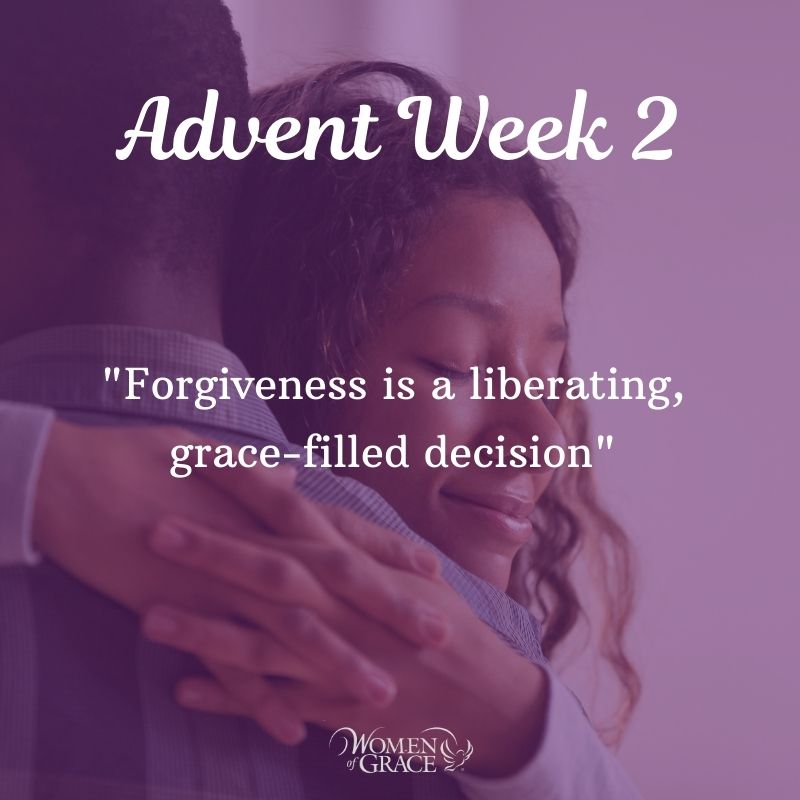
Yesterday, our Advent post introduced us to seven of the most common misconceptions regarding forgiveness. It presented to us that forgiveness does not mean that we condone the hurtful behavior nor does it mean that our pain doesn’t matter. It doesn’t mean that once we extend it, everything is magically “okay” and it doesn’t mean that we allow ill will toward us to continue. It doesn’t mean that we stay in an abusive or harmful situation nor does it mean that a just resolution to our situation is unnecessary. And, it does not mean that we feel forgiveness.
So, if forgiveness is not any of the above, what is forgiveness?
Forgiveness is a free-will action, prompted by grace, which sets us free from the consequences of sin. Forgiveness is a liberating, grace-filled decision. And it most frequently takes place over time.
C. S. Lewis, the great Christian apologist, wrote, “There is no use in talking as if forgiveness were easy. We all know the old joke, ‘You’ve given up smoking once; I’ve given it up a dozen times.’ In what he did that day? I’ve forgiven him more times than I can count.’ For we find that the work of forgiveness has to be done over and over again.”
Psychologists have helped to identify the steps in the process of forgiveness. Basically, they all agree on certain fundamental actions. Today, we will look at three of them.
First, admit the anger. For various reasons, many people do not admit they are angry. As long as this anger remains below the surface, it exerts a power that is difficult to control. Admitting it exists is the first way to loosen its hold.
Second, identify or name the emotions or hurt involved. Ask the questions, “What did I lose?” or “What negative effect has the offense caused?” The answers to these questions point the direction to healing and help identify what needs to be resolved. Is it a loss of fidelity, the negative effect of rejection, a loss of good name?
Third, express the emotion or hurt. Write it out in a journal, talk with a friend, confessor, or spiritual director, talk to the person who injured you, but get it out.
Today’s Spiritual Exercise
Recall the person the Holy Spirit brought to your mind whom you need to forgive.
Dismissing the misconceptions regarding forgiveness that you identified yesterday, apply the first three actions in the process of forgiveness listed above.
Use your journal to record any insights, inspirations, understandings you may gain as you prayerfully consider them in light of the person you most need to forgive.
Be sure to begin your time of prayer with a prayer to the Holy Spirit asking for wisdom and a prayer request for Our Lady’s intercession.
Close your time of prayer with a resolution — one concrete way you will move forward — and with a prayer of thanksgiving to God for His love and mercy.
For more on forgiveness, we recommend Johnnette’s book, “Full of Grace: Women and the Abundant Life” or “Experience Grace in Abundance.”
Copyright 2020, by Johnnette Benkovic Williams. All rights reserved.









